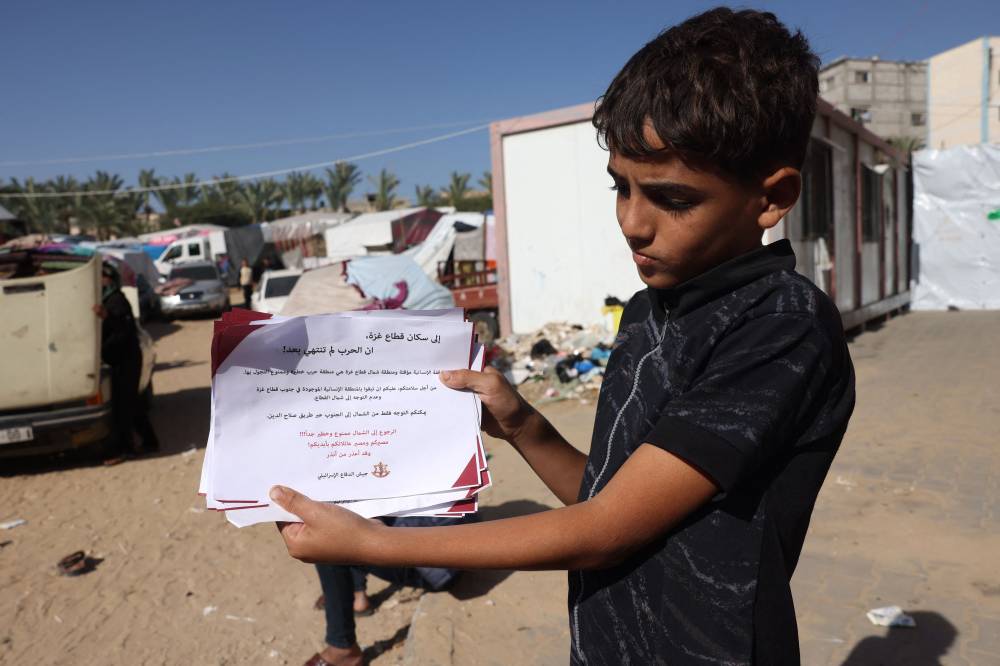New wave of hostages set for release

GAZA STRIP, Palestinian Territories—Hamas fighters are set to release a new wave of hostages Saturday in exchange for Palestinian prisoners, officials said, offering hope to anguished families after seven weeks of war that have killed thousands of people.
Key mediator Qatar was expected to announce the numbers of prisoners and hostages to be freed later Saturday, the second swap since a four-day ceasefire came into effect on Friday and largely silenced the guns on both sides.
Israeli authorities said they had received a list of the hostages to be freed but did not provide numbers or the precise timing.
On Friday, the first day of the truce, Hamas released 24 hostages, according to key mediator Qatar and an official Israeli list. “It’s only a start, but so far it’s gone well,” US President Joe Biden told reporters in Massachusetts, where he was spending the Thanksgiving holiday.
“I think the chances are real” for extending the truce, he said.
Biden also urged a broader effort to emerge from the crisis with a viable Palestinian state alongside Israel.
About 215 hostages remain in Gaza, Israeli army spokesperson Doron Spielman said.
“We’re unaware, many of these cases, if they are dead or alive. We’re trying to collect intelligence,” he said.
Truce deal
Hamas fighters snatched the captives when they broke through Gaza’s militarized border with Israel on Oct. 7, killing about 1,200 people, according to Israeli figures.
In response to the deadliest attack in its history, Israel launched an air, artillery and naval offensive to destroy Hamas, killing about 15,000 people, according to the Hamas government in Gaza.
Hamas is expected to free 50 hostages during the ceasefire in exchange for 150 Palestinian prisoners, part of an agreement struck after talks involving Israel, Palestinian militant groups, Qatar, Egypt and the United States.
Israeli Prime Minister Benjamin Netanyahu vowed to bring all the Hamas hostages home.

“This is one of the goals of the war, and we are committed to achieving all the goals of the war,” he said.
The pause in fighting in Gaza opened the way to desperately needed aid.
Trucks carrying supplies, including fuel, food and medicine, began moving into Gaza through the Rafah crossing from Egypt shortly after the truce began at 7 a.m. (0500 GMT) Friday.
Two-hundred aid trucks in total passed through—the biggest humanitarian convoy to enter the besieged territory since the war started—according to the Israeli defense ministry body that handles Palestinian civil affairs.
Not yet overJens Laerke, spokesperson for UN humanitarian agency Ocha, expressed hope that the pause would lead “to a longer-term humanitarian ceasefire.”
Gazans have struggled to survive with shortages of water and other essentials.
The ceasefire also sparked a mass movement of thousands of people who had sought refuge in schools and hospitals from relentless Israeli bombardment.
The UN estimates that 1.7 million of Gaza’s 2.4 million people have been displaced by the fighting.
In southern Gaza’s Khan Yunis, where many Palestinians fled, a cacophony of car horns and ambulance sirens replaced the sound of war.
People loaded belongings onto carts, strapped them to car roofs, or slung bags over their shoulders, crowding streets to return to their homes from temporary shelters.
Israeli warplanes dropped leaflets warning people that the war is not over and it is “very dangerous” to return north, the focus of Israel’s military campaign.
Several thousand Palestinians nevertheless attempted to move north on Friday, the UN humanitarian affairs organization said. —AFP
AFP is one of the world's three major news agencies, and the only European one. Its mission is to provide rapid, comprehensive, impartial and verified coverage of the news and issues that shape our daily lives.
















